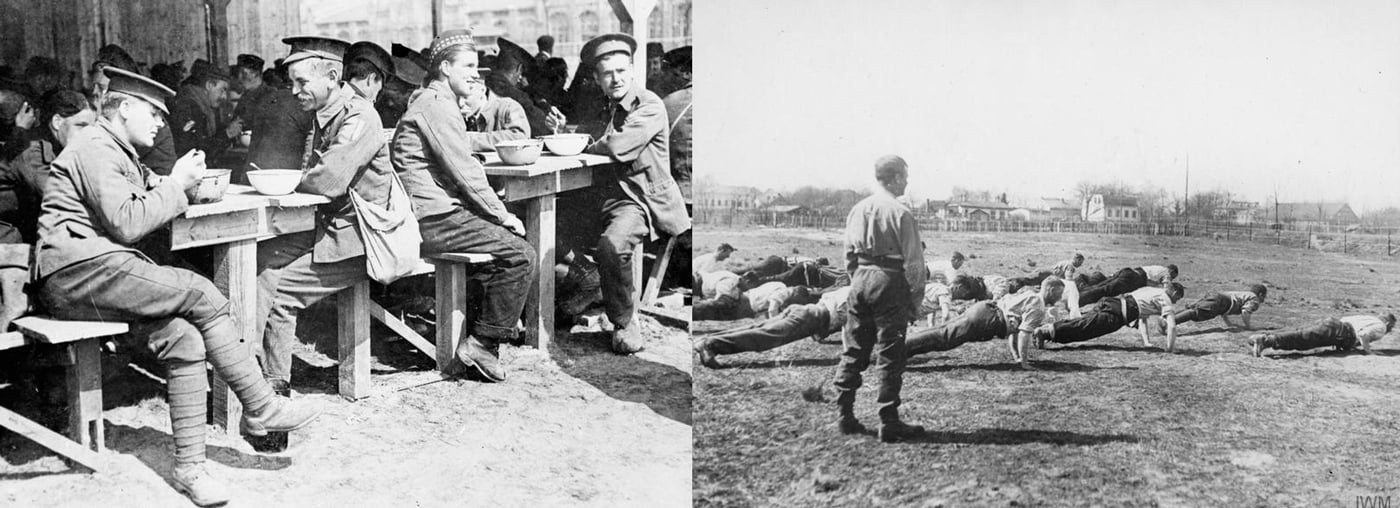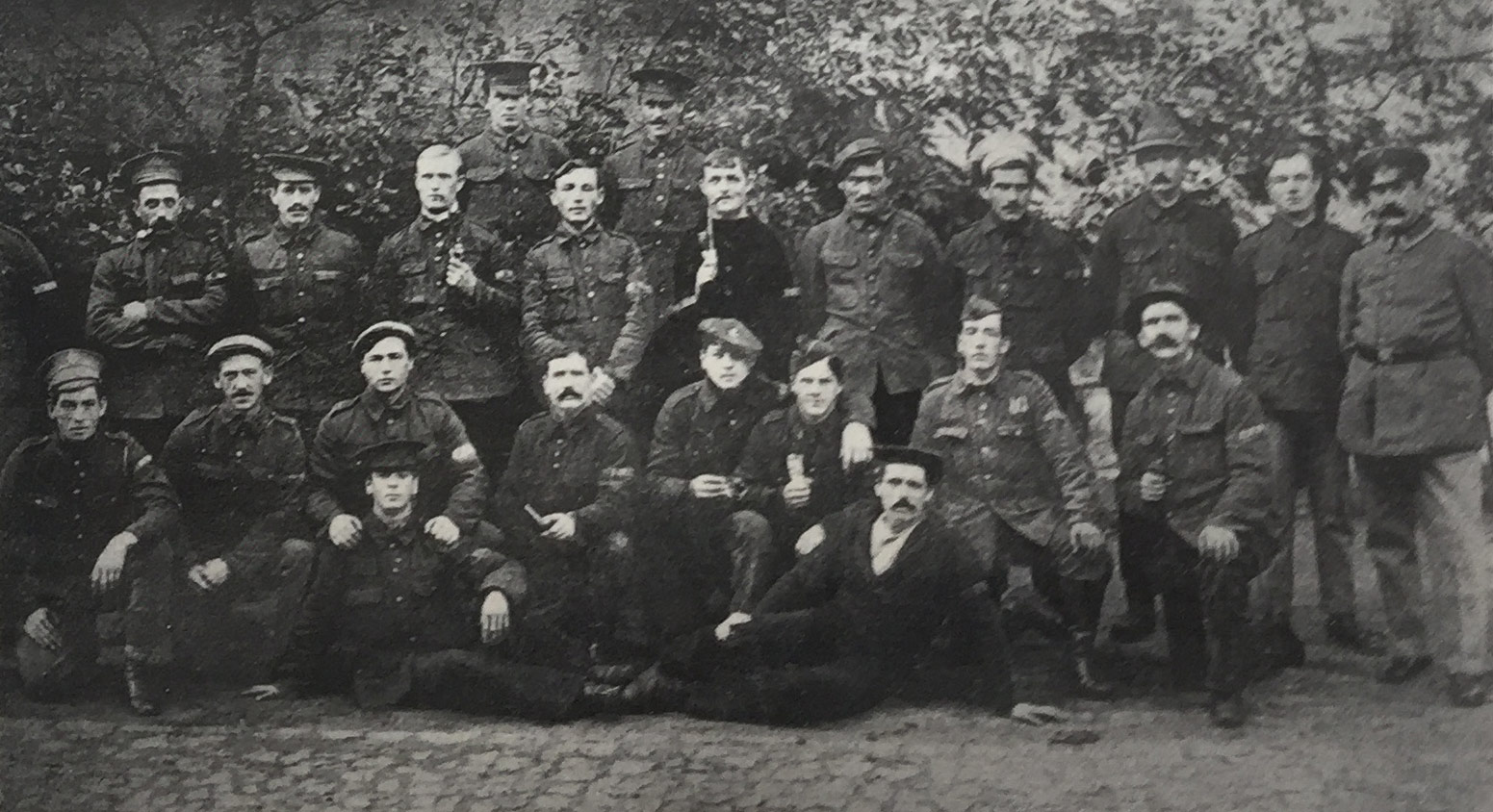British prisoners of war well treated in Germany
Germany, 13 November 1915 - There is no evidence of mistreatment of British soldiers held in prisoner of war camps in Germany.
American representatives visited eight such camps across Germany in recent weeks. There were complaints in some camps about matters of minor irritation, but nothing of any gravity.
At the camp in Crefeld for example there were 740 officers of various nationalities, including 160 British officers. General Bruce and Colonel Bolton each have their own rooms, staff officers generally live in pairs, while junior officers share larger dormitories.
Some of the English officers objected to sharing rooms with officers of different nationalities due to differences over how the rooms should be ventilated, but they had been permitted to move their beds into the corridors.
A report prepared by the Americans noted: ‘The health of the camp is good, and the general atmosphere seems satisfactory. I tasted the men’s food and found it very good.’

British prisoners of war eating and taking part in physical training. (Image: Imperial War Museum)
Herverst-Dorsten
At the prison camp at Herverst-Dorsten there were about 700 prisoners, 200 of whom were British, with the remainder being French and Russian. One prisoner was serving a 14 day sentence for attempted escape while another was serving a shorter sentence for feigning sickness.
The men are working usually at agricultural jobs, leaving at
6.30am and returning at 5pm. Nine or 10 men slept to a room, all
of which were lit by lamps.
Food consisted of thick vegetable soup, with servings of meat. The
prisoners in the camp admitted that the food was ‘very
good’.
Dr Heather Jones, Associate Professor of International History, LSE talks to RTÉ's David McCullagh about the treatment of prisoners during the First World War.
[Editor's note: This is an article from Century Ireland, a fortnightly online newspaper, written from the perspective of a journalist 100 years ago, based on news reports of the time.]





















